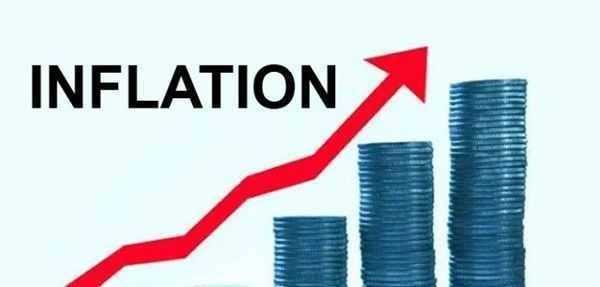Consumer inflation, which measures overall prices of goods and services, reached its highest level in 18 years in June, according to statistics issued by the Ghana Statistical Service (GSS).
This is an increase of 2.2 percentage points over the 27.6 percent observed in May. The traditional culprit, gasoline costs, were the primary cause of June's inflation, which witnessed a sharp increase in the transport sector's inflation rate to 41% from the previous month's 22%.
At 30.7 percent, food inflation was 1.6 percentage points higher than non-food inflation, which was at 29.1 percent. Locally produced goods had an inflation rate of 29.2 percent, while imported goods saw a 31.3 percent inflation rate.
Since April 2022, imports have seen greater inflation rates than domestically produced goods for the third consecutive month. Compared to the changes seen in April (1.7 percentage points) and May (2022), the margin expanded in June (2022) by 2.1 percentage points (0.9 percentage point).
With a 35.8 percent inflation rate, the Eastern Region replaced Greater Accra as the region with the highest inflation rate at the regional level. The Western Region recorded 33.9 percent as its runner-up. With a 21 percent inflation rate, the Upper East Region has the lowest inflation rate.
expert opinion
Dr. John Kwakye, Director of Research at the Institute of Economic Affairs (IEA), discussed the central bank's policy reaction to recent persistent inflation, while conceding that the Inflation Targeting method might assist lessen the Second-round inflation brought on by irregular price shocks from supply-side factors like food, exchange rates, and gasoline underlined that it is illogical to expect the BoG's narrow zone of influence to considerably reduce inflation.
In a roundtable discussion with the IEA on the topic of "Rethinking Inflation Management in Ghana in the Wake of COVID-19 and the Russia-Ukraine War," the economist stressed this issue.
Dr. Kwakye reaffirmed that the BoG and central government must work together to solve the particular, cyclical character of Ghana's inflation, adding that the latter "must accept ultimate responsibility for the inflation situation."
using the UK as an illustration, where the Chancellor of the Exchequer, a position akin to our minister of finance, establishes the A similar strategy is required in Ghana, according to the IEA's Director of Research, who set an inflation target and charged the Governor of the Bank of England with achieving it.
He mentioned the recent admission by US Federal Reserve Chairman Jerome Powell that raising the Fed rate would not directly affect the cost of food and fuel, two major contributors to the current inflationary trend. In talking about the possibility of another policy rate hike, he cited this statement.
What is the reason for subsequent rises - and the signal for additional increases in the rate, presumably to manage inflation? Dr. Kwakye questioned: "If food and gasoline are drivers of US inflation and the Fed rate will not have any influence on them."
hybrid strategy
The IEA advocated what it called a "mixed" or "hybrid" approach to combat inflation permanently. This, according to the institute, is a combination of an IT technique, which it referred to as the "macro-approach" since it targets all headline inflation, and a "micro-method" that specifically targets chronic supply or cost components of the CPI.
The former member of the Monetary Policy Committee went on to say that the only transformational measures that can guarantee long-term stability of the exchange rate and curb effects on inflation are those that significantly enhance foreign exchange revenues and decrease foreign exchange demand.
Policies aimed at increasing the availability of food were hailed as essential, such as fostering modern mechanised farming while simultaneously providing traditional farmers with inputs and improved storage. Renovating the Tema Oil Refinery, emphasising local goods, and upholding currency regulations are also important.
In order to reduce pressure on the cedi, the IEA recommended the BoG to continue working with international mining, oil, and gas, telecom, and banking firms to delay the repatriation of their profits and dividends.
The BoG might make arrangements to retain custody of surplus money and pay out until they are ready to be repatriated.


